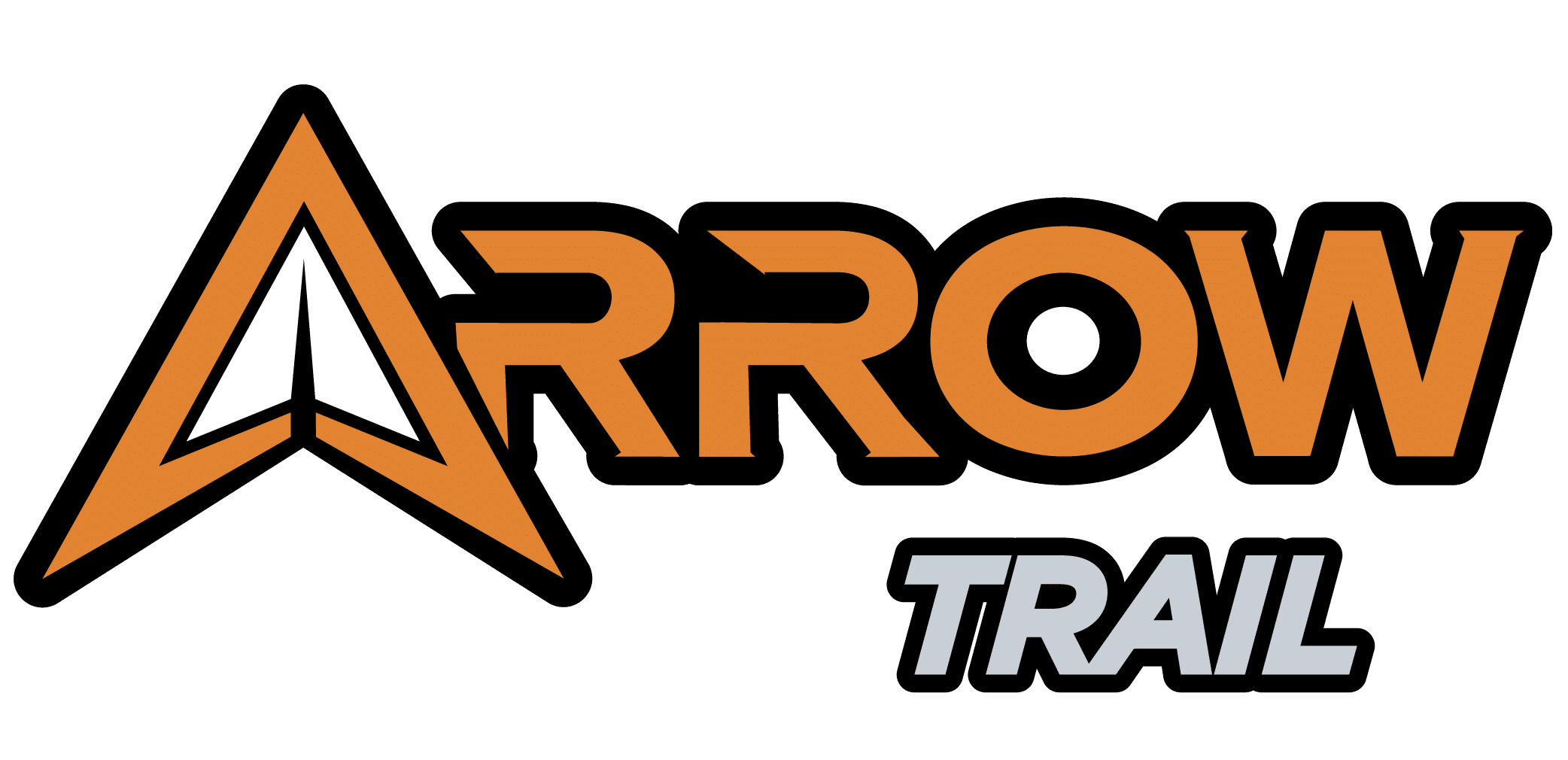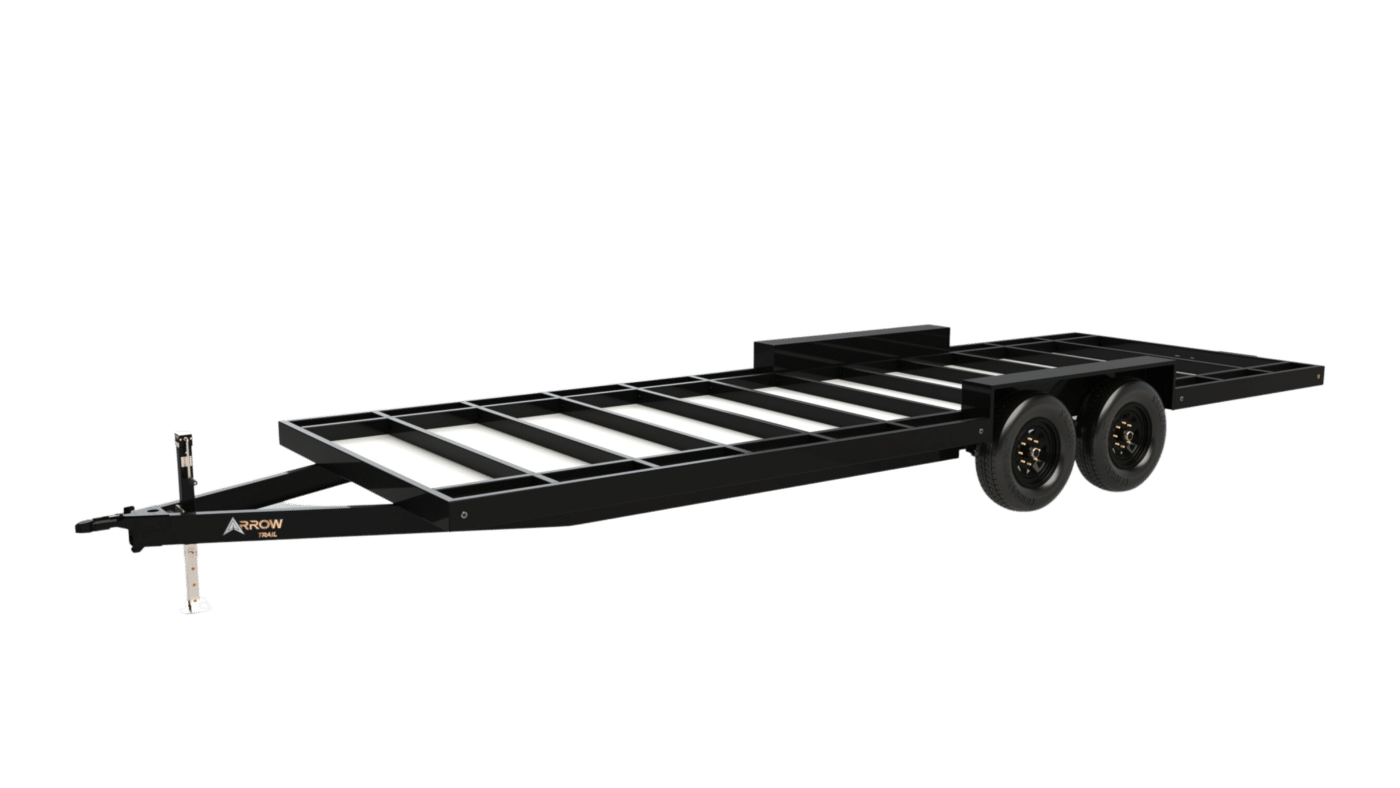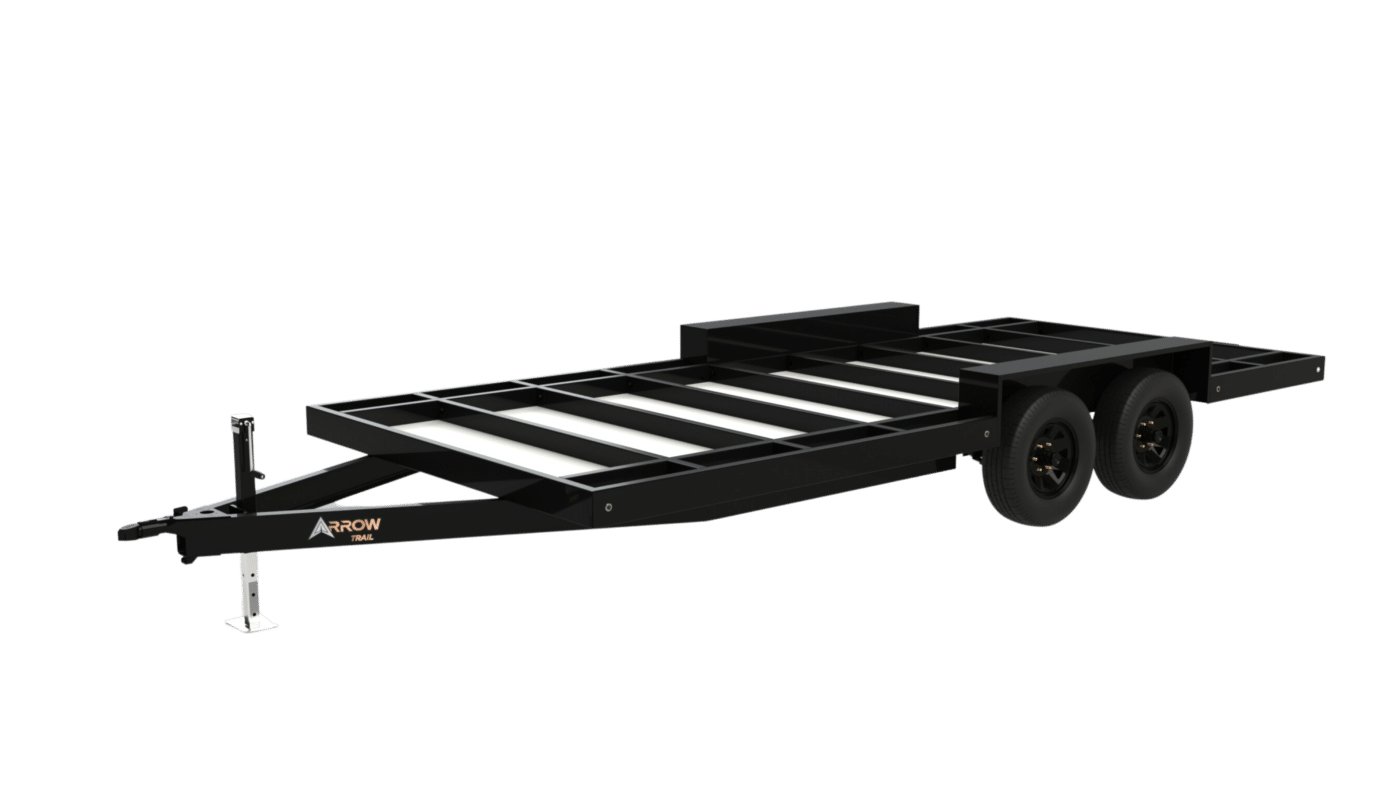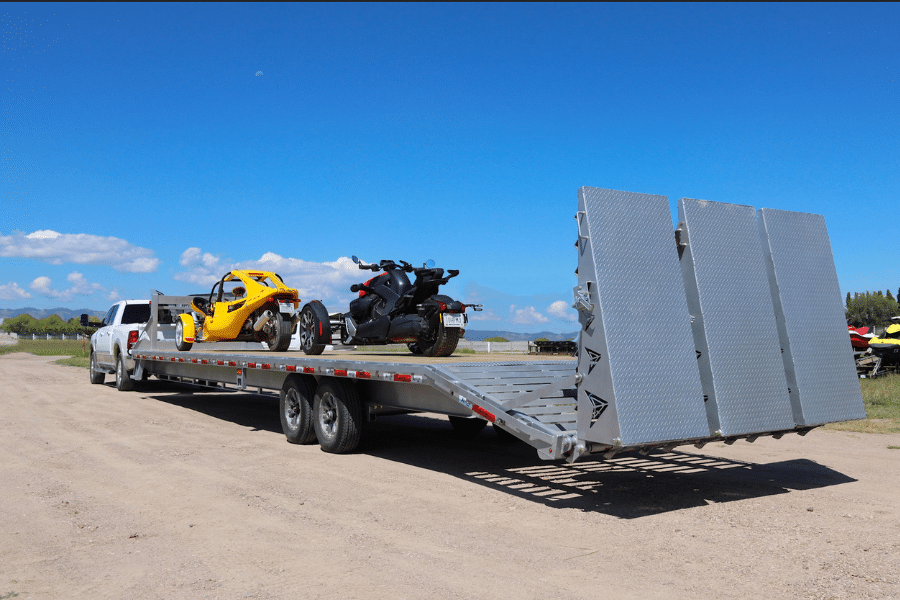
Like many other states across the U.S., Tennessee has a set of laws and requirements in place for those towing trailers. These rules are designed to promote safety for both the operator and other drivers on the road. If you plan to own or operate a trailer in Tennessee, you’ll need to comply with these laws.
To make it easier, we’ve compiled a list of Tennessee’s trailer laws and requirements so you can ensure your trailer is compliant and your haul is safe.
While the Tennessee Department of Transportation (TDOT) sets statewide standards, some details may vary by city or county. It’s important to check with your local officials to confirm any additional rules that may apply where you live.
With that in mind, here are the trailer laws and requirements in Tennessee.
What is the New Towing Law in Tennessee?
On July 1, 2024, Tennessee enacted the Modernization of Towing, Immobilization, and Oversight Normalization (MOTION) Act, a law that protects drivers, especially those towing trailers, from predatory booting and excessive towing or storage fees.
Under the MOTION Act, only licensed individuals are permitted to place boots on vehicles, and only in commercial parking lots. The law also prohibits booting in the following cases:
- When a truck or trailer is clearly identified as a commercial vehicle by a USDOT number or a commercial license plate
- When a trailer is properly registered under Tennessee state law
The law includes these specific rules for booting and towing from commercial lots:
- Only a licensed parking attendant may install a boot
- The attendant must be available to remove the boot within 45 minutes of being contacted
- Boot removal fees may not exceed $75
- All commercial parking lots must post clear notices about towing and booting
- If a vehicle has not yet been towed from the lot, it must be released to the owner for no more than $100
- Vehicle owners must receive proper notice if their vehicle is being towed, sold, or demolished
- Beginning July 1, 2025, a public portal will be available to notify individuals of unclaimed vehicles being offered for sale
What Are the Trailer Requirements in Tennessee?
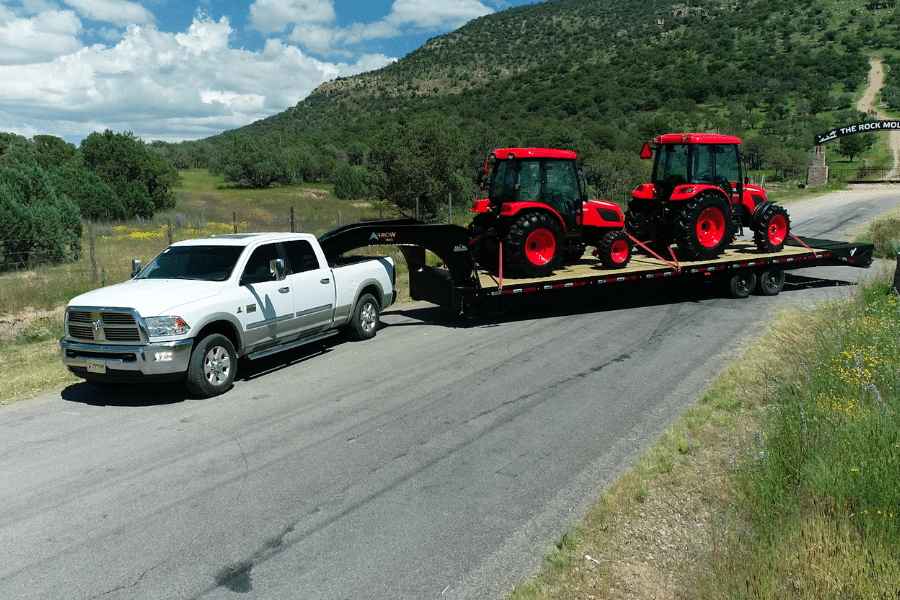
There are many requirements your trailer must meet to not only pass inspection but also be certified as road safe. We’ll outline them below.
Trailer Registration & Title Requirements
All trailers in Tennessee must be registered. However, titling requirements depend on the type of trailer. While a title is not always necessary, you should always keep a bill of sale or another document that proves ownership.
Does My Trailer Need a License Plate in Tennessee?
That depends on how the trailer is used. Commercial trailers must have a license plate. Personal-use trailers, such as boats, utility, or campers, do not require a license plate.
Does My Trailer Need a Title in Tennessee?
According to the Tennessee Department of Revenue, farm, boat, utility, and pop-up/fold-down trailers are not required to be titled. However, other trailers likely need to be titled.
It is important to note that even if your trailer is exempt from title or plate requirements, the towing vehicle must be properly titled, registered, and equipped with valid tags and a license plate. Additionally, it’s always important to check that your trailer does not need a license plate or to be titled to ensure compliance and prevent potential fines or other legal trouble.
Equipment and Safety Requirements
These are some of the most important safety requirements for both you and other drivers on the road. Trailer lights, signaling devices, braking systems, and hitch and coupling components help maintain a secure connection between your towing vehicle and trailer, while also making your trailer visible and predictable to others on the road.
At Arrow Trail, we take safety seriously. Download our spec sheet to learn more about the braking systems, lighting, and other safety features included with our trailers. If you have any questions about trailer safety, feel free to contact us.
Lighting and Signals
The following trailer lights and signaling devices are required:
- Two tail lamps mounted on the rear of the trailer, red in color, and visible from a reasonable distance
- Two stop lamps mounted on the rear, red in color
- Two turn signal lamps mounted on the rear, amber or red in color
- Two rear reflectors mounted at the same height, red in color
- Four side reflectors are mounted at each corner, front reflectors are amber, and rear reflectors are red
In addition, your trailer’s tail lights, brake lights, and turn signals must be in working order and visible from at least 500 feet.
Can I Pull a Trailer Without Lights in Tennessee?
No, it’s incredibly important that your trailer has functioning lights so other drivers can see it clearly and respond to your signals.
Braking
To pass inspection, your trailer must meet the following brake requirements:
- Brake Requirements Based on Trailer Weight:
| Gross Weight | Brake Requirements |
| 3,000 lbs + | Brakes must be on all wheels |
| 1,500 to 3,000 lbs | Must have brakes on one axle |
| <1,500 lbs | Brakes are not required |
- Brake Linings:
- Must be replaced if its thickness is 5/16 inches or less
- Must be firmly attached to the shoe and not saturated with oil, grease, or brake fluid
- If the oil, grease, or brake fluid cannot be cleaned, the brake lining must be replaced
- Brake Drums: Won’t pass inspection if there are any cracks outside of short hairline heat cracks
- Emergency Braking System: Trailers with brakes must have an emergency break-away braking device
Hitch and Coupling Safety Standards
To ensure a secure connection between your towing vehicle and trailer, the following standards must be met:
- Coupling Device:
- Must be able to support and maintain control of what is being towed
- Cannot have cracks or excessive wear
- Trailer Hitch:
- Make sure your trailer hitch is rated for the weight of your trailer
- It must be securely attached & regularly inspected for wear and tear
Frame and Structural Integrity Requirements
Your trailer frame must be constructed in the following ways in order to pass Tennessee inspection:
- Must have the design and strength consistent with trucks that are carrying loads of similar characteristics
- All welding MUST be of electric weld
- Frame, cross members, and body mounts can’t be cracked, broken, bent, or rusted to a depth that would significantly weaken the frame
- Cross members must not be loose or missing
- Body mount & bolts can’t be missing, and the rivets can’t be deteriorated or missing
Other Equipment & Safety Requirements
Additional safety equipment must meet specific standards to ensure a reliable and secure haul.
- Spring Assembly
- Spring assemblies must not have any broken leaves
- Spring hangers must not be broken or loose
- Axle Assembly
- U-bolts must not be cracked, broken, or loose
- All suspension assemblies must be securely fastened
- Safety Chains
- Must be capable of maintaining a connection between the towing vehicle and trailer if the primary hitch fails
- Two safety chains are required, and they must be crossed underneath the hitch
Wheel and Tire Compliance Guidelines
Trailer inspection requirements are detailed to ensure safety on the road. Wheels and tires, for example, must meet the following standards:
- Tires
- Tires must:
- Have a tread groove depth of at least 2/32 of an inch, measured at any point on a major tread groove
- Have a tread groove depth of at least 2/32 of an inch, measured at any point on a major tread groove
- Tires must not:
- Be mounted in a way that allows contact with any part of the vehicle
- Be flat or leaking
- Have bulges or sidewall deformities
- Have cuts deep enough to expose the cord
- Be cracked or otherwise damaged
- Be labeled “Farm Use Only” or “Off-Highway Use Only”
- Be mounted in a way that allows contact with any part of the vehicle
- Tires must:
- Wheels and Rims
- Must be free of cracks and in good condition
- Stud holes must be round
- Must be free of cracks and in good condition
- Wheel Fasteners or Lug Bolts must not be loose, broken, missing, or stripped
Trailer Size and Weight Guidelines
Legal Trailer Dimensions
In Tennessee, trailers must not exceed the following dimensions unless otherwise noted:
- Length: No more than 48 feet from the point of attachment, except when transporting livestock or automobiles, in which case the maximum length is 52 feet
- Height: 13 feet 6 inches
- Width: 8 feet 6 inches
At Arrow Trail, all of our trailers are built to comply with Tennessee state regulations and come in various sizes. Download our trailer spec sheets to verify compliance or to review detailed specifications.
Trailer Weight Limits
In Tennessee, a trailer typically may not exceed a gross weight of 80,000 pounds before it is classified as overweight or oversized. We will cover those classifications in more detail below. It is also essential to stay within your towing vehicle’s rated capacity to avoid safety risks.
If you have questions about your vehicle’s towing capacity or the load capabilities of our trailers, feel free to contact us.
Oversize and Overweight Trailer Requirements
If your trailer exceeds any of the following limits, it is considered overweight or oversized:
- Gross weight over 80,000 pounds
- More than 20,000 pounds on a single axle, even if the total weight is under 80,000 pounds
- More than 34,000 pounds on tandem axles, even if the total weight is under 80,000 pounds
- Dimensions that exceed the maximum height, width, or length requirements listed earlier
If your trailer qualifies as overweight or oversized, you must obtain a special use permit. The Tennessee Department of Transportation (TDOT) offers both annual permits for frequent haulers and temporary permits valid for up to 10 days for single trips. The type of permit required depends on the specific weight and configuration of your load. Be sure to certify compliance with all applicable regulations through TDOT before operating on public roadways.
Utility Trailer Laws in Tennessee
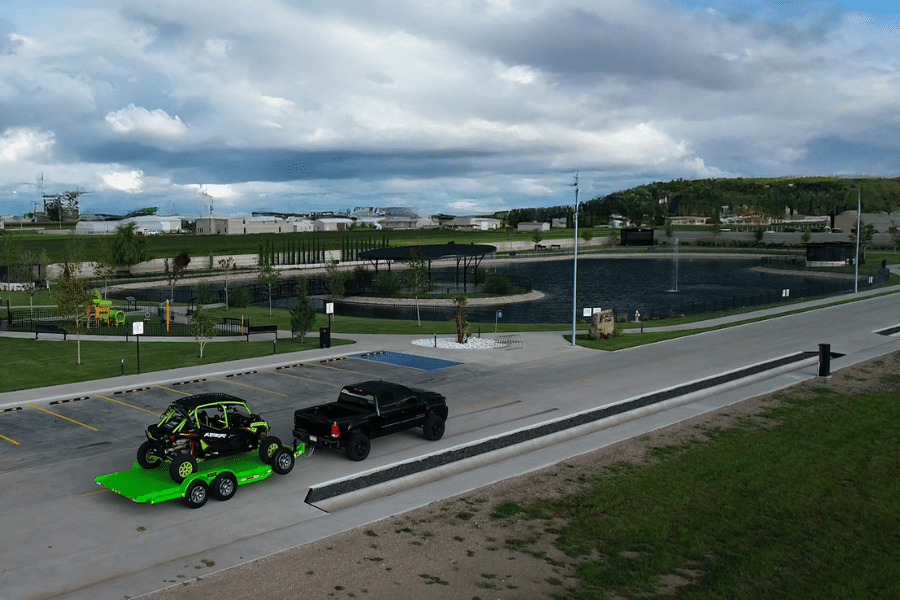
While the requirements outlined above apply broadly to trailers in Tennessee, the rules are slightly different for utility trailers used for personal purposes. We’ll cover a few of them below.
What Are the Laws for Utility Trailers in Tennessee?
The laws for utility trailers in Tennessee differ from the ones listed above in a few key ways:
Trailer Size & Weight Limits
- Maximum Width: 8.5 Feet
- Maximum Height: 13.5 Feet
- Maximum Gross Vehicle Weight: 10,000 pounds, without proper permits
Trailer Registration & Inspection
As outlined earlier, utility trailers being used for personal use do not need to be registered or titled as long as they are being hauled by a licensed Tennessee vehicle.
Do You Have to Inspect a Utility Trailer?
No, any trailer that is not required to be registered or titled does not need to pass a safety inspection.
If your utility trailer is being hauled for commercial purposes or exceeds the size and weight requirements outlined above, than licensing, titling, and therefore inspection may be required. Always contact the Tennessee Department of Transportation to certify compliance.
Find a Trailer That Meets Tennessee’s Legal Standards
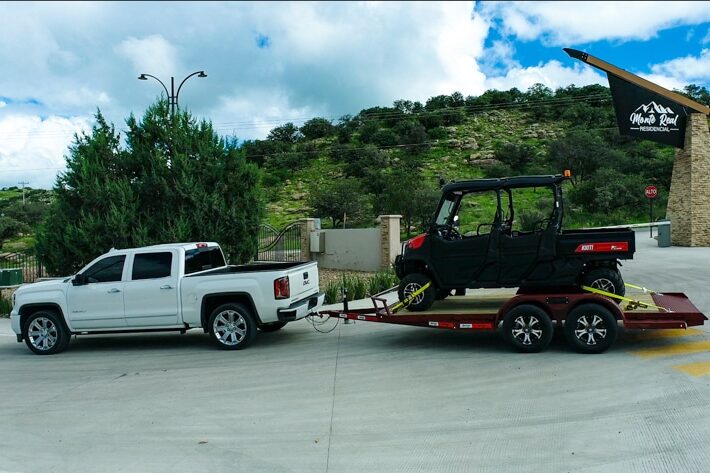
Now that you have a clearer understanding of Tennessee’s requirements, it’s time to find a trailer that complies with them. From size and weight limits to brake systems and lighting, compliance starts with what you buy.
What to Look for in a Compliant Trailer
In addition to the specifics outlined above, these trailer features are essential to pay close attention to:
- A valid VIN (Vehicle Identification Number)
- Proper lighting and reflectors in working condition
- Safety chains or breakaway brakes, depending on weight
- Axles and tires rated for the intended load
- A hitch that’s compatible with your towing vehicle
- Documentation showing legal ownership and proof of manufacture
If you need more help finding a trailer, check out our guide on how to choose the right trailer for your needs.
Browse Legal Trailer Options
If you want to ensure compliance with Tennessee’s laws, you’ll want to find a trailer from a trusted source. At Arrow Trail, we take compliance seriously. With all of our trailer models, you’ll find a downloadable spec sheet where you can check trailer weight, dimensions, hitch, coupler, and safety chain information, and more.
Get Expert Help Before You Buy
If you want to ensure that your trailer is compliant with Tennessee state requirements, reach out to us. Arrow Trail is located in Tennessee and provides residents with top-quality, compliant trailers. We’d be happy to answer any of your questions.
Contact us or request a quote to get a TDOT-compliant trailer today!
